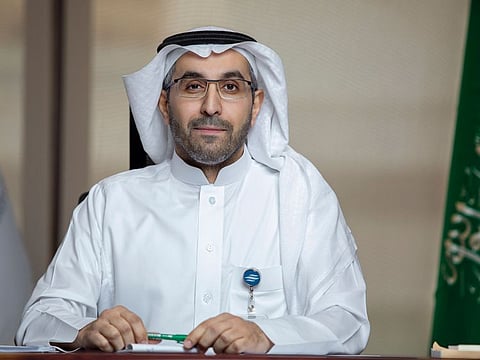Saudi Arabia's $16b water pipeline expansion is one big privatisation play in making
Newly created water transmission company sets clear path towards IPO

Dubai: For its privatization plans, Saudi Arabia is not thinking – or taking - half-measures.
If anyone needs confirmation, check out the kingdom’s utility sector… and specifically, the water side of it.
“All desalination plants will become standalone production companies as part of our privatization strategy,” said Abdullah Bin Ibrahim Al-Abdlkareem, Governor of Saline Water Conversion Corporation (SWCC) and Chairman of newly formed Water Transmission and Technologies Co. (WTTC).
“This, along with the broader strategy, presents many benefits. These include improving the Kingdom's ability to attract investors, boosting private sector participation, creating a competitive environment, and reducing costs.”
The formation of WTTC in November would thus be the first step in kicking the privatization play into a higher gear. In one stroke, the entity was made responsible for more than 8,400 kilometres of transmission, distribution and water storage systems, which would handle 7 million cubic metres of desalinated water every day across the country.
No end to this pipeline
If one thought 8,400 kilometres of water pipeline was substantial, it doesn’t end there… “We're planning to add approximately 3,500 kilometres of new transmission lines that will distribute more than 4 million cubic metres per day of desalinated water,” said Abdullah Bin Ibrahim Al-Abdlkareem. “These developments will represent an investment in hard infrastructure totaling around 60 billion riyals ($16 billion). A significant portion of the capital funding will come from the public-private partnerships we're forging.”
Getting it IPO ready
So, where does the privatization part kick in? Or, more to the point, when?
“The government fully owns WTTC,” the official added. “However, after ensuring financial stability and the compatibility of plans with the need for expansion, we believe WTTC will be well placed to be offered for IPO.
“The company is represented by the Supervisory Committee for Privatization of the Environment. It will play a critical role in realizing the national water transformation programme's strategic goals… while also bringing further efficiency to the sector and greater coherence between existing and future stakeholders.”
Holds the key
Saudi Arabia believes a full-scale opening up of various sectors, backed up by privatization steps, will be central to reviving an economy that ears scars from the COVID-19 breakout. It’s wealth fund is already committing to multi-billion dollar commitments into the domestic economy in the next two to three years.
Within this space, it will be relatively straight-forward to convince potential investors of the merits in picking up stakes in the utility sector. With its population of 34 million, there definitely is a captive audience.
Better as standalone
According to Al-Abdlkareem, setting up a standalone water transmission company makes sense rather than club it with desalination assets.
“The Water Transmission & Technologies Company is one of the national water strategy's central pieces,” he said. “It stands alone as part of a water sector currently going through a period of restructuring.
“We chose to segment our transmission operations into a standalone company because we judged this to be the most effective structure for meeting WTTCO's goals as a commercialized entity.
“In short, those goals are to maximize the use of assets and achieve greater spending efficiency while decreasing supply chain costs.”
An update on one big desal plant
It was in June last that Saudi Arabia confirmed that diverse parties were keen on an ownership stake in Ras Al-Khair — the world's largest desalination plant. The site will become the first brownfield desalination and power asset in the country to be privatized. In total, 37 companies, including global names, are in the bid. The privatization of other assets is also in play towards the wider goal of Saudi Arabia's National Transformation Programme.
Sign up for the Daily Briefing
Get the latest news and updates straight to your inbox







